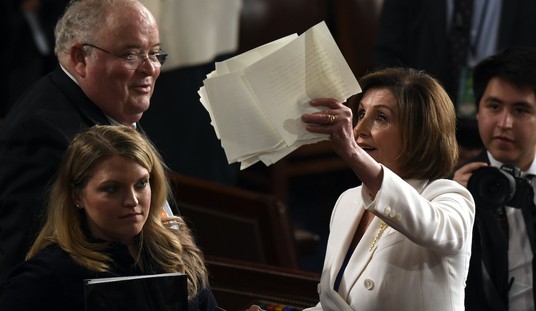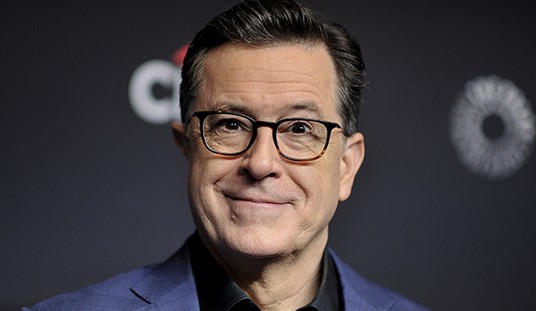One of the reasons that I was against the bailouts, both bank and auto, was the effect I feared it would have on the way business is conducted. It’s easy to point to a TARP loan being repaid (with interest) and declare victory for bailouts. But to do so assumes that all consequences of government intervention in private enterprise have been realized.
One of the main concerns from opponents of the bailouts was cronyism. And cronyism is rearing it’s ugly head these days.
Case in point, Dan Akerson of General Motors.
Akerson was appointed to the board of directors at GM to represent the U.S. treasury back in 2009 as at the time, the Government owned a 61% stake in the company. In January of 2011, he assumed the role of Chairman of the Board. So the question becomes, who now does Akerson represent? The Americans that are shareholders and consumers of these products? Or the group of powerful politicians that helped put him there? Are his interests aligned with what is best for the company? Or is he Chairman in title while still essentially representing the administration?
Some fun quotes for digestion:
“I think you need to cut the hell out of the budget and you’ve got to increase taxes…on everybody.” – Dan Akerson on the budget
“We are in the midst of transforming an iconic American company so 20 and 30 years from now (taxpayers) will look at this company and they’ll say, ‘Absolutely it was the right thing to do…And it shouldn’t be measured on did it sell for $43 or $53 (a share) or did they [taxpayers] lose a couple billion dollars.” – Dan Akerson on the Auto bailouts
Ok, so he’s down with higher taxes and he thinks the bailouts were awesome no matter the cost because hey, GM is totally an icon and needs to stay.
But is he a crony?
“You know what I’d rather have them do — this will make my Republican friends puke — …we ought to just slap a 50-cent or a dollar tax on a gallon of gas.” A government-imposed tax hike, Akerson believes, will prompt more people to buy small cars and do more good for the environment than forcing automakers to comply with higher gas-mileage (CAFE) standards.- Dan Akerson on gas taxes.
Higher taxes on gasoline to force consumers into smaller cars? Essentially a roundabout way of forcing higher fuel standards against the free market’s wishes. Does this sound like a man looking out for an auto company? Or a man touting the government line? As I noted last month, the Obama administration is looking to do this very thing.
As I’ve also pointed out, the auto industry as a whole does not seem to be too thrilled with the concept of throwing their customers under the bus in the name of higher fuel efficiency. When 15 Republican has-beens came out in favor of massively increased MPG standards (again in an attempt to force the Obama green dreams onto the public), experts in the industry (of which Akerson is not, given that his prior experience as an executive had nothing to do with automobiles) railed against the concept:
“There is clearly a special interest campaign to achieve a politically motivated fuel economy number that is not supported by the data,” said Gloria Bergquist, vice president of the Alliance of Automobile Manufacturers, which lists its members online as Chrysler, Ford, GM, Mazda, Porsche, Toyota, Volkswagen, BMW and others.”
This past weekend, the Administration actually came out in favor of similar standards to the one’s proposed by those 15 Republicans. In fact, many are very disappointed that the industry seems committed to doing right by their customers and are more than happy to publicly call them out as “owing us one.”
Roland Hwang, transportation program director for the Natural Resources Defense Council [NRDC], said he was “cautiously optimistic” about the 56.2 mpg proposal but added, “The devil is in the details for us.”
Noting that the federal government had provided the U.S. auto industry with more than $89 billion in bailout and retooling loans in recent years, Hwang said he was “overwhelmingly disappointed with the automakers for putting such low numbers on the table. That’s extraordinary when you consider how much money we’ve provided them to build fuel-efficient cars. And now they say, ‘You can’t have them.’ ”
But hey, that’s just some special interest group right? They don’t have any sway with the administration do they? I’m sure President Obama appointing NRDC co-founder John Bryson to lead the Commerce Department is just a happy coincidence right? The fact that this environmentalist will head a government bureaucracy which “oversee[s] a sprawling department that represents U.S. business interests and oversees oceans, climate and science at the National Oceanic and Atmospheric Administration” and will, as a result have direct influence over industry leaders making decisions for companies that are central to the climate change debates means nothing right? Companies like say….General Motors? If the leaders in those industries just happen to be friendly to the ideas of this new Commerce Secretary in spite of its proven negative economic and industry effect, that’s normal right? Is that cronyism?
I’ve been told many times by TARP and auto bailout apologists that the government made a wise investment. Their proof? The money was paid back! Maybe they’re right. Maybe that’s all there is to it. You make an investment, it pays off financially, end of story. But I can’t help but wonder, when you have a series of CEO’s and Chairman’s that “owe one” to this administration. When you hear them repeating the talking points of the President even when it is in stark contrast to the best interests of very industry that they are supposed to be a leader in. I can’t help but wonder, was it worth it?














Join the conversation as a VIP Member